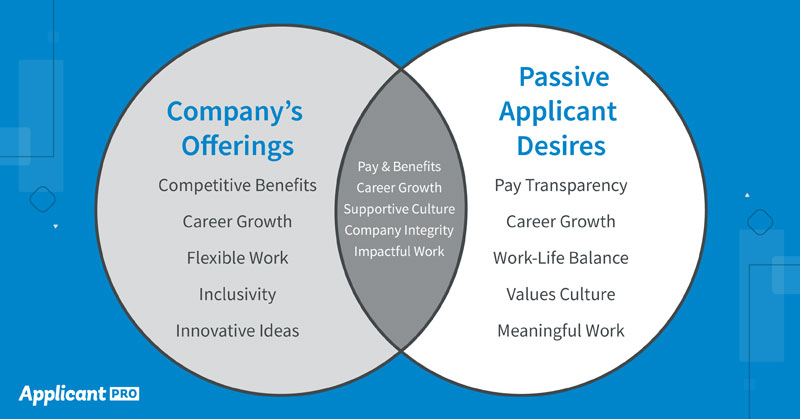
Ban the Box Legislation: How Does it Affect Your Hiring Process?
Chances are you’ve heard the term Ban the Box. Perhaps your organization hires employees in one of the many regulated jurisdictions throughout the United States, and you’re a well-seasoned veteran of the regulations. Maybe you’re unfamiliar with the concept entirely! Whatever your situation may be, we hope this article can shed some light on the ever-growing, ever-changing Ban the Box movement.
Ban the Box is a well-intended movement designed to give individuals with criminal records a fair chance at employment.
What is Ban the Box?
In a nutshell, Ban the Box is a generic term used for a law or regulation that essentially prohibits an employer from inquiring about criminal records on an employment application, and in some cases, delays the time in which an employer can inquire about criminal records until later in the hiring process. The term derives from the criminal record question “checkbox” found on most employment applications.
Statistics from the United States Department of Justice indicate that there are approximately 650,000 individuals released from prison every year. These individuals have a need, and often a desire, to work and become productive members of society. In essence, Ban the Box is a well-intended movement designed to give individuals with criminal records a “fair chance” at employment. The conventional wisdom is that removing the criminal record question from an employment application will prevent an employer from making an automatic disqualification decision without first examining an applicant’s qualifications or providing a chance for him/her to explain his/her side of the story. Whether or not these laws are necessary or working as intended is entirely up for debate and certainly a topic for a separate discussion.
Currently, the following jurisdictions have some form or another of Ban the Box legislation on the books:
States: Hawaii, Illinois, Massachusetts, Minnesota, New Jersey, Oregon, Rhode Island
Counties: Montgomery County, MD Prince George’s, MD
Municipalities: Baltimore, MD; Buffalo, NY; Chicago, IL; Columbia, MO; New York, NY; Philadelphia, PA; Rochester, NY; San Francisco, CA; Seattle, WA
Attract More Highly Qualified Applicants
We spend countless hours researching the most effective, easy to implement, and FREE strategies that will dramatically boost your qualified applicant flow.
Because Ban the Box laws vary greatly from jurisdiction to jurisdiction, you should consult with competent legal counsel in your jurisdiction to ensure compliance if your organization operates or hires employees in any of the aforementioned jurisdictions. In some jurisdictions, the law may or may not apply depending on the size of your organization and whether or not your organization is public or private. Nevertheless, it’s vitally important to understand if and how the law applies to your organization. This is especially true for employers with multi-jurisdictional operations who may hire individuals from different parts of the country. While all Ban the Box jurisdictions prohibit the use of a criminal record question or “box” on the employment application, many jurisdictions go beyond this basic requirement and require the employer to delay inquiring about criminal records or even running a background check until an interview has been performed or an offer extended.
Below are some examples of when an employer can inquire about criminal records during the hiring process:
Carefully examine your current hiring practices and examine whether or not it is necessary to ask applicants about their criminal history
The cities of Chicago, IL and Seattle, WA along with the states of Illinois, Massachusetts and Minnesoa allow an employer to ask about criminal records after an “initial screening of applicants.”
Employers in Buffalo, NY, the states of Oregon and Rhode Island can ask about criminal records during the first interview, while employers in Montgomery County, MD; Price Georges County, MD; the state of New Jersey, Philadelphia, PA; Rochester, NY and San Francisco, CA can only inquire about criminal records after the first interview.
Finally, the cities of Baltimore, MD; Columbia, MO; New York City, NY; the District of Columbia and the state of Hawaii require employers to wait until after a conditional offer of employment has been extended to the applicant.
Given the growing trend of Ban the Box legislation across the country, ProScreening suggests that employers carefully examine their current hiring practices and examine whether or not it is necessary to ask applicants about their criminal history. Employers in Ban the Box jurisdictions should be especially careful with the risks of asking about criminal records, and should only do so when legally permissible.
Legal Disclaimer: This article is designed solely for informational purposes, and should not be inferred or understood as legal advice. Persons in need of legal assistance should seek the advice of competent legal counsel.
To learn more about how we can assist you with your pre-employment background screening program, please contact us!

Increase qualified applicant flow across the board.
Download this exclusive guide to improve your qualified applicant flow.
Share this article
Related Articles

Unlocking the Hidden Talent Pool: How to Attract Passive Candidates
Boost your hiring strategy! Learn how to attract passive candidates with ApplicantPro's expert tips, insights, and stats for a stronger talent pipeline.

What is an ApplicantPro Market Analysis?
Discover how our Market Analysis can help you stand out from the competition and attract top talent. From competitor pay reviews to job-seeker personas, our Recruitment Marketing experts provide actionable insights to improve your hiring process.

Are You Using Background Checks?
Ensure you make the best hire for your business with our seamless background check solution! Our integrated ATS system simplifies the process, providing complete and compliant reports with just a click.